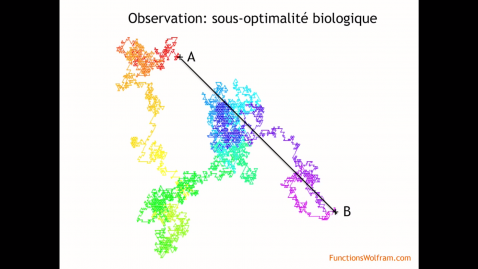Parameters
Research - A case for imperfection, impurity, inefficiency[edit | edit source]
"I feel as though rich white people are trying to suck the life out of the world, in part through an obsession with being personally shielded from poison and violence."alexis shotwell"
Pure and Impure[edit | edit source]
"Being against purity means that there is no primordial state we might wish to get back to, no Eden we have desecrated, no pretoxic body we might uncover through enough chia seeds and kombucha. There is not a preracial state we could access, erasing histories of slavery, forced labor on railroads, colonialism, genocide, and their concomitant responsibilities and requirements."
(Biss 2014, 39) writes, “I believe that ideas about separating, purifying, demarcating and punishing transgressions have as their main function to impose system on an inherently untidy experience”. This imposition, in her analysis, is contingent and shifting—she does not think that cultural practices of purity indicate a timeless or iron-clad set of classifications. Rather, on her account, “rituals of purity and impurity create unity in experience. . . . By their means, symbolic patterns are worked out and publically displayed. Within these patterns, disparate elements are related and disparate experience is given meaning” (2–3). She frames managing “dirt” as a key move in creating these unities: As we know it, dirt is essentially disorder. There is no such thing as absolute dirt: it exists in the eye of the beholder. If we shun dirt, it is not because of craven fear, still less dread or holy terror. Nor do our ideas about disease account for the range of our behavior in cleaning or avoiding dirt. Dirt offends against order. Eliminating it is not a negative movement, but a positive effort to organize the environment. (2) Concepts and practices of purity and impurity, in relation to dirt as well as other things understood as dirty, tell us something about how people understand the world they live in, and thus how they can imagine the world becoming. In other words, purity practices are also productive normative formulations—they make a claim that a certain way of being is aspired to,
Donna Haraway “‘Ideas’ are themselves technologies for pursuing inquiries. It’s not just that ideas are embedded in practices; they are technical practices of situated kinds” (Haraway 2008, 282). While current practices may well be connected to the forms of primarily religious purity practice Douglas discusses, in this book I am more concerned whttps://ageingcompanions.constantvzw.org/books/Alexis_Shotwell_-_Against_Purity__Living_Ethically_in_Compromised_Times_2016_University_of_Minnesota_Press.pdfith the practices that characterize and structure key modes of life today. Both sorts of practices, though, deploy a particular idea-as-technology of parsing, cleansing, and delineating.
(Biss 2014, 39) Biss frames it, appears in many other contexts: Purity, especially bodily purity, is the seemingly innocent concept behind a number of the most sinister social actions of the past century. A passion for bodily purity drove the eugenics movement that led to the sterilization of women who were blind, black, or poor. Concerns for bodily purity were behind miscegenation laws that persisted more than a century after the abolition of slavery, and behind sodomy laws that were only recently declared unconstitutional. Quite a bit of human solidarity has been sacrificed in pursuit of pre-serving some kind of imagined purity. (Biss 2014, 75–76)
Purity and Danger, Douglas theorizes purity and impurity in terms of the instantiation and disruption of a shared symbolic order. Purity/impurity discourses act, according to Purity and Danger, as a homeostatic system which ensures the preservation of this social whole, generally encoding that which threatens social equilibrium as impurity. ... Purity and impurity do more than judge self-identity, however. They can play a fundamental role in its performative construction; they are well adapted for smuggling assumptions into our discourses regarding the essence of particular phenomena and forms of subjectivity, simplifying a complex world into a stark contrast between the dangerous and the innocent, the valuable and the valueless, the necessary and the contingent, the originary and the prosthetic, the real and the apparent, and the unitary and the fragmented.
Polution and Contamination[edit | edit source]
In addition to making ethical compromises, we are also, as a recent selfhelp book about responding to toxins in our bodily environments puts it,“born pre-polluted” (Lourie and Smith 2013, 3). Our bodily boundaries are penetrated and traversed by viruses, chemicals, microbes. This way of being compromised names the sense in which we are liable to danger, vulnerable, potentially or actually damaged or sickened. Under contemporary regimes dictating individualist responses to pollution, we are made responsible forour own bodily impurity; we are called on to practice forms of defense against our own vulnerability. Charting the space between complicity and pollution, between righteousness and compromise, is difficult.
Wolfson: "Fear of contamination rests on the belief, widespread in our culture as in others, that something can impart its essence to us on contact. We are forever polluted, as we see it, by contact with a pollutant. And the pollutants we have come to fear most are the products of our own hands. Though toxicologists tend to disagree with this, many people regard natural chemicals as inherently less harmful than man-made chemicals."
Suboptimal in biological systems[edit | edit source]
https://www.youtube.com/watch?v=xl_zIgSAfZA
Exesses and Irrationality[edit | edit source]
Bataille
Batailean Ecology: An introduction to the Theory of Sustainable Exess https://discovery.ucl.ac.uk/id/eprint/10079968/1/II%20Ray%20Huling%20Bataillean%20Ecology%20%5BFinal%5D.pdf
